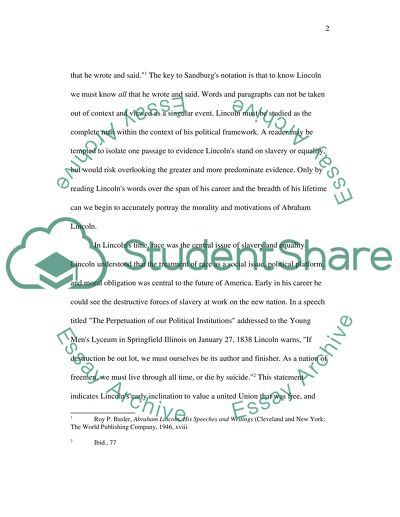Cite this document
(“The pragmatic views of Abraham Lincoln Essay Example | Topics and Well Written Essays - 4000 words”, n.d.)
The pragmatic views of Abraham Lincoln Essay Example | Topics and Well Written Essays - 4000 words. Retrieved from https://studentshare.org/history/1503811-the-pragmatic-views-of-abraham-lincoln
The pragmatic views of Abraham Lincoln Essay Example | Topics and Well Written Essays - 4000 words. Retrieved from https://studentshare.org/history/1503811-the-pragmatic-views-of-abraham-lincoln
(The Pragmatic Views of Abraham Lincoln Essay Example | Topics and Well Written Essays - 4000 Words)
The Pragmatic Views of Abraham Lincoln Essay Example | Topics and Well Written Essays - 4000 Words. https://studentshare.org/history/1503811-the-pragmatic-views-of-abraham-lincoln.
The Pragmatic Views of Abraham Lincoln Essay Example | Topics and Well Written Essays - 4000 Words. https://studentshare.org/history/1503811-the-pragmatic-views-of-abraham-lincoln.
“The Pragmatic Views of Abraham Lincoln Essay Example | Topics and Well Written Essays - 4000 Words”, n.d. https://studentshare.org/history/1503811-the-pragmatic-views-of-abraham-lincoln.


